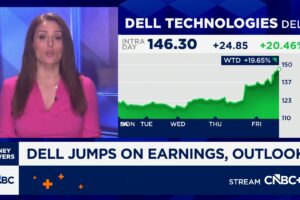<p class="canvas-atom canvas-text Mb(1.0em) Mb(0)–sm Mt(0.8em)–sm" type="text" content="Most conversations about streaming music revolve around the three market leaders: Spotify (NYSE: SPOT), Apple (NASDAQ: AAPL) Music, and Sirius XM‘s (NASDAQ: SIRI) Pandora.” data-reactid=”11″>Most conversations about streaming music revolve around the three market leaders: Spotify (NYSE: SPOT), Apple (NASDAQ: AAPL) Music, and Sirius XM‘s (NASDAQ: SIRI) Pandora.
Spotify finished last quarter with 217 million monthly active users (MAUs) and 100 million paid subscribers; Apple hit 60 million paid subscribers earlier this year; and Pandora — which relies more on ad-supported free listeners than paid subscribers — finished last quarter with 66 million MAUs, but just 6.9 million subscribers.
<p class="canvas-atom canvas-text Mb(1.0em) Mb(0)–sm Mt(0.8em)–sm" type="text" content="However, investors should also be watching Amazon (NASDAQ: AMZN), which is reportedly gaining streaming music listeners at a faster pace than all three of the aforementioned platforms. The Financial Times recently reported that the number of subscribers on Amazon Music Unlimited grew 70% annually over the past year and that it had 32 million subscribers on all its music platforms combined, including Unlimited and Prime Music.” data-reactid=”13″>However, investors should also be watching Amazon (NASDAQ: AMZN), which is reportedly gaining streaming music listeners at a faster pace than all three of the aforementioned platforms. The Financial Times recently reported that the number of subscribers on Amazon Music Unlimited grew 70% annually over the past year and that it had 32 million subscribers on all its music platforms combined, including Unlimited and Prime Music.
For comparison, Spotify’s total number of subscribers rose 25% annually during the same period. Apple Music’s subscribers rose about 50% annually during its last update in April, and Pandora’s subscribers grew just 23%. Do those numbers indicate that Amazon is well-poised to disrupt the streaming music market?


Image source: Getty Images.
Amazon’s approach to streaming music
Amazon’s first foray into this area was Amazon Music, an iTunes-like store that launched over a decade ago and let users download and stream purchased songs. Five years ago Amazon launched Prime Music, which offered Prime members unlimited streaming from a limited music catalog. In 2016 it introduced Amazon Music Unlimited, a full-catalog music streaming platform offered as an additional or stand-alone subscription service.
On a stand-alone basis, Amazon Music Unlimited costs the same as Spotify and Apple Music at $10 per month. However, Prime members can subscribe to the service for $8 a month, while subscribers who only listen on Echo devices pay just $4 a month. Amazon also offers a free ad-supported version for all Alexa devices.
Leveraging two key strengths
Amazon is leveraging two key strengths to expand its streaming music business: its Prime ecosystem, which has over 100 million subscribers in the U.S. alone, according to CIRP; and its Echo devices, which controlled two-thirds of the U.S. smart speaker market last year, according to eMarketer.
On its own, Amazon Music Unlimited is already priced competitively against Spotify and Apple Music. However, it could be a cheaper and more appealing option for existing Prime subscribers and Echo owners, especially those who frequently use their speakers to listen to music.


Image source: Amazon.
<p class="canvas-atom canvas-text Mb(1.0em) Mb(0)–sm Mt(0.8em)–sm" type="text" content="A recent survey by Microsoft found that 63% of smart speaker owners listened to music on their devices. That’s probably why Amazon is reportedly developing a higher-fidelity version of the Echo that can compete more effectively against higher-end smart speakers like Apple’s HomePod and Sonos One.” data-reactid=”49″>A recent survey by Microsoft found that 63% of smart speaker owners listened to music on their devices. That’s probably why Amazon is reportedly developing a higher-fidelity version of the Echo that can compete more effectively against higher-end smart speakers like Apple’s HomePod and Sonos One.
Amazon Music chief Steve Boom told The Financial Times that 14% of its subscribers were 55 years old or older, compared to just 5% of Spotify subscribers in that same age bracket. Boom stated that the company wasn’t “battling for the same customers as everyone else,” and that it needed to look beyond younger listeners for “the industry to reach its full potential.”
Another quiet growth market for Amazon
Amazon generates most of its revenue from its e-commerce marketplace and Amazon Web Services (AWS) cloud platform. But it’s also quietly creeping into other markets like online advertising, streaming video, and streaming music.
<p class="canvas-atom canvas-text Mb(1.0em) Mb(0)–sm Mt(0.8em)–sm" type="text" content="Amazon's online ad platform is already the third-largest in the U.S., according to eMarketer. Its streaming video platform, Prime Video, ranks second in the domestic streaming video market after Netflix, according to Parks & Associates. Therefore, it wouldn’t be surprising if Amazon gains more ground against Spotify, Apple Music, and Pandora in an increasingly crowded streaming music market.” data-reactid=”53″>Amazon’s online ad platform is already the third-largest in the U.S., according to eMarketer. Its streaming video platform, Prime Video, ranks second in the domestic streaming video market after Netflix, according to Parks & Associates. Therefore, it wouldn’t be surprising if Amazon gains more ground against Spotify, Apple Music, and Pandora in an increasingly crowded streaming music market.
<p class="canvas-atom canvas-text Mb(1.0em) Mb(0)–sm Mt(0.8em)–sm" type="text" content=" More From The Motley Fool ” data-reactid=”54″> More From The Motley Fool
<p class="canvas-atom canvas-text Mb(1.0em) Mb(0)–sm Mt(0.8em)–sm" type="text" content="John Mackey, CEO of Whole Foods Market, an Amazon subsidiary, is a member of The Motley Fool’s board of directors. Teresa Kersten, an employee of LinkedIn, a Microsoft subsidiary, is a member of The Motley Fool’s board of directors. Leo Sun owns shares of Amazon and Apple. The Motley Fool owns shares of and recommends Amazon, Apple, Microsoft, and Netflix. The Motley Fool owns shares of Spotify Technology and has the following options: long January 2021 $85 calls on Microsoft, short January 2020 $155 calls on Apple, long January 2020 $150 calls on Apple, short January 2020 $155 calls on Apple, and long January 2020 $150 calls on Apple. The Motley Fool recommends Sirius XM Radio. The Motley Fool has a disclosure policy.” data-reactid=”59″>John Mackey, CEO of Whole Foods Market, an Amazon subsidiary, is a member of The Motley Fool’s board of directors. Teresa Kersten, an employee of LinkedIn, a Microsoft subsidiary, is a member of The Motley Fool’s board of directors. Leo Sun owns shares of Amazon and Apple. The Motley Fool owns shares of and recommends Amazon, Apple, Microsoft, and Netflix. The Motley Fool owns shares of Spotify Technology and has the following options: long January 2021 $85 calls on Microsoft, short January 2020 $155 calls on Apple, long January 2020 $150 calls on Apple, short January 2020 $155 calls on Apple, and long January 2020 $150 calls on Apple. The Motley Fool recommends Sirius XM Radio. The Motley Fool has a disclosure policy.










